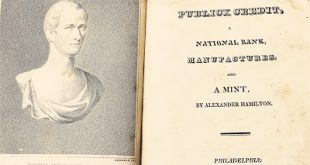When US President Donald Trump boasted that trade wars are "easy to win" in March 2018, it was convenient to dismiss the remark as a rhetorical flourish. Yet it is now clear that Trump meant it, because he genuinely believes the bizarre and anachronistic macroeconomic theories underlying his approach.... When even Robert Barro is against you.Interestingly, Professor Barro reiterates that imports are an economic benefit in the sense of increasing a nation's real wealth, and that trade is...
Read More »Trump’s Cross of Gold — Barry Eichengreen
US President Donald Trump wants to compress the United States trade deficit and enhance the competitiveness of domestic manufacturers by using tariffs to raise the price of imported goods. And the fixed exchange rates he needs to achieve that goal are the real reason behind his nomination of Judy Shelton to the Federal Reserve Board.... Project SyndicateTrump’s Cross of Gold Barry Eichengreen | Professor of Economics at the University of California, Berkeley, and a former senior policy...
Read More »Bill Mitchell — The German undervaluation obsession is resistant to ‘reform’
Martin Höpner, who works at the Max-Planck Institute for the Study of Societies in Cologne, recently sent me a copy of his latest paper – The German Undervaluation Regime under Bretton Woods: How Germany Became the Nightmare of the World Economy (published January 2019). He presented this research at a Makroskop workshop in Wurzburg on October 13, 2018 – I was on the same panel as him at that workshop and enjoyed some very productive conversation about these issues. It is a very interesting...
Read More »Cohen and DeLong on Hamilton’s Report on Manufactures
Hamilton's Reports, posthumous 1821 edition Stephen Cohen* and Brad DeLong, in their highly readable book Concrete Economics: The Hamilton Approach to Economic Growth and Policy (if you haven't, go buy a copy now), argue that “Alexander Hamilton [was a] major economic theorist. His theory of economic development, first set out in his famous Report on Manufactures (1791), not only reshaped America’s economy but was channeled by Frederich List half a century later to play a central role...
Read More » Heterodox
Heterodox

